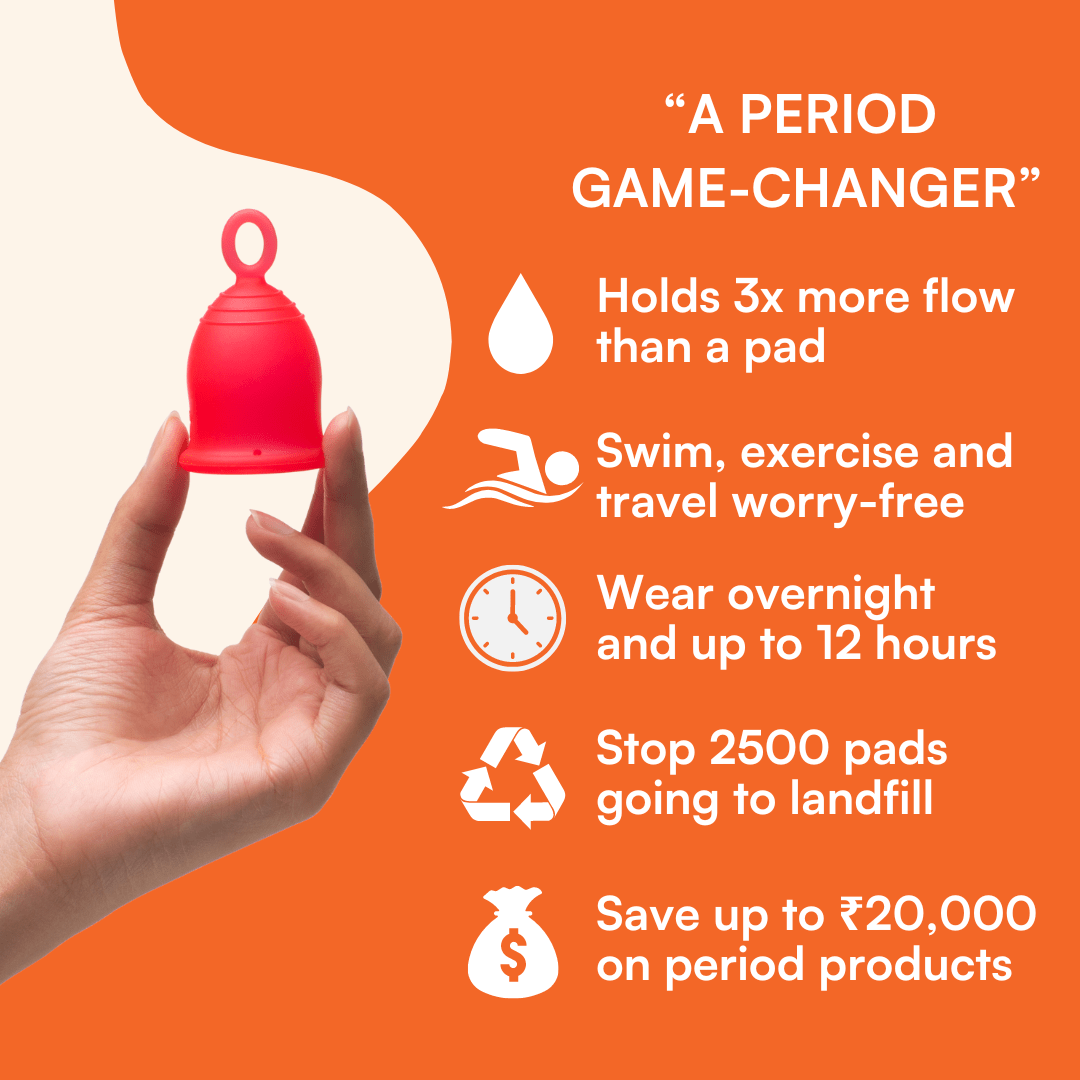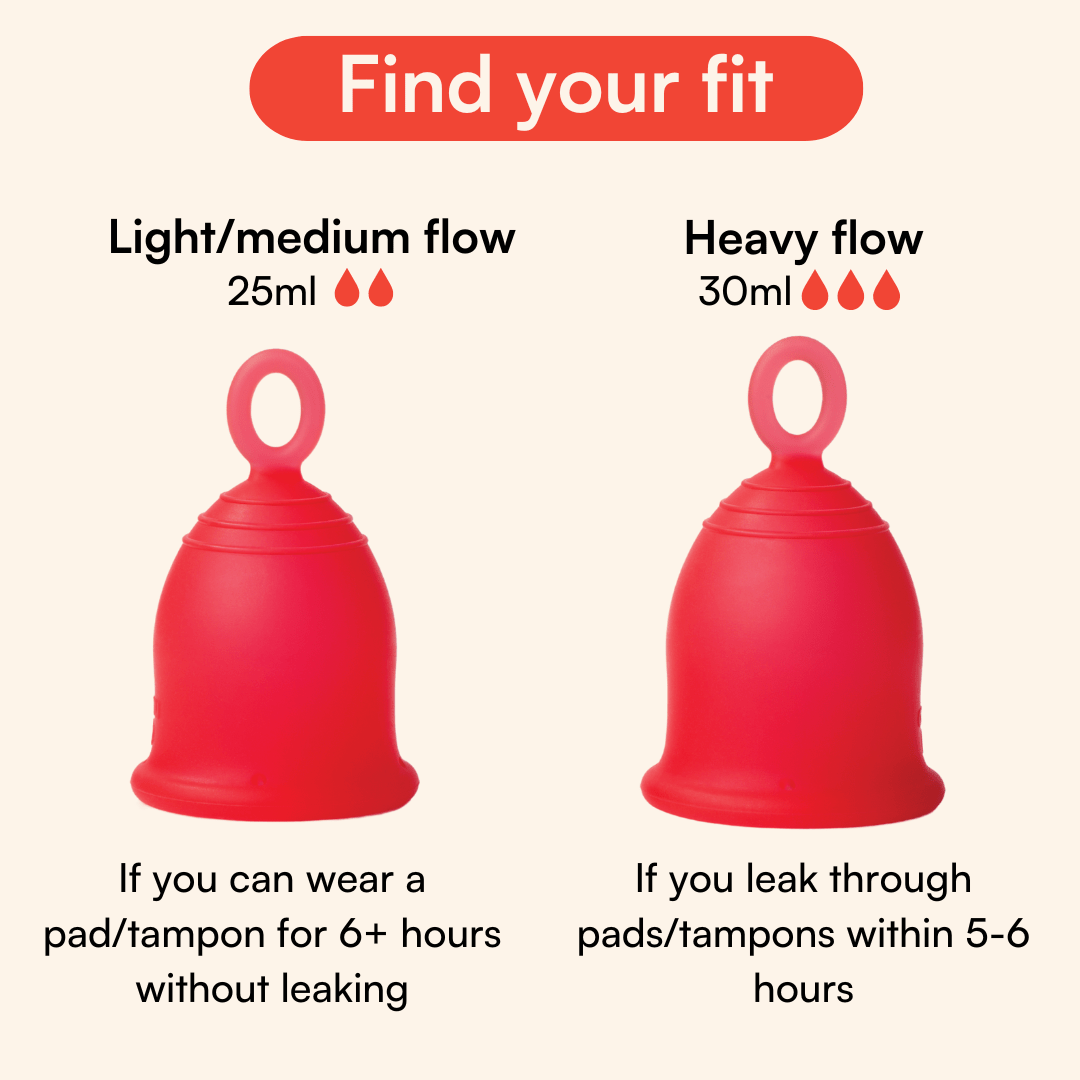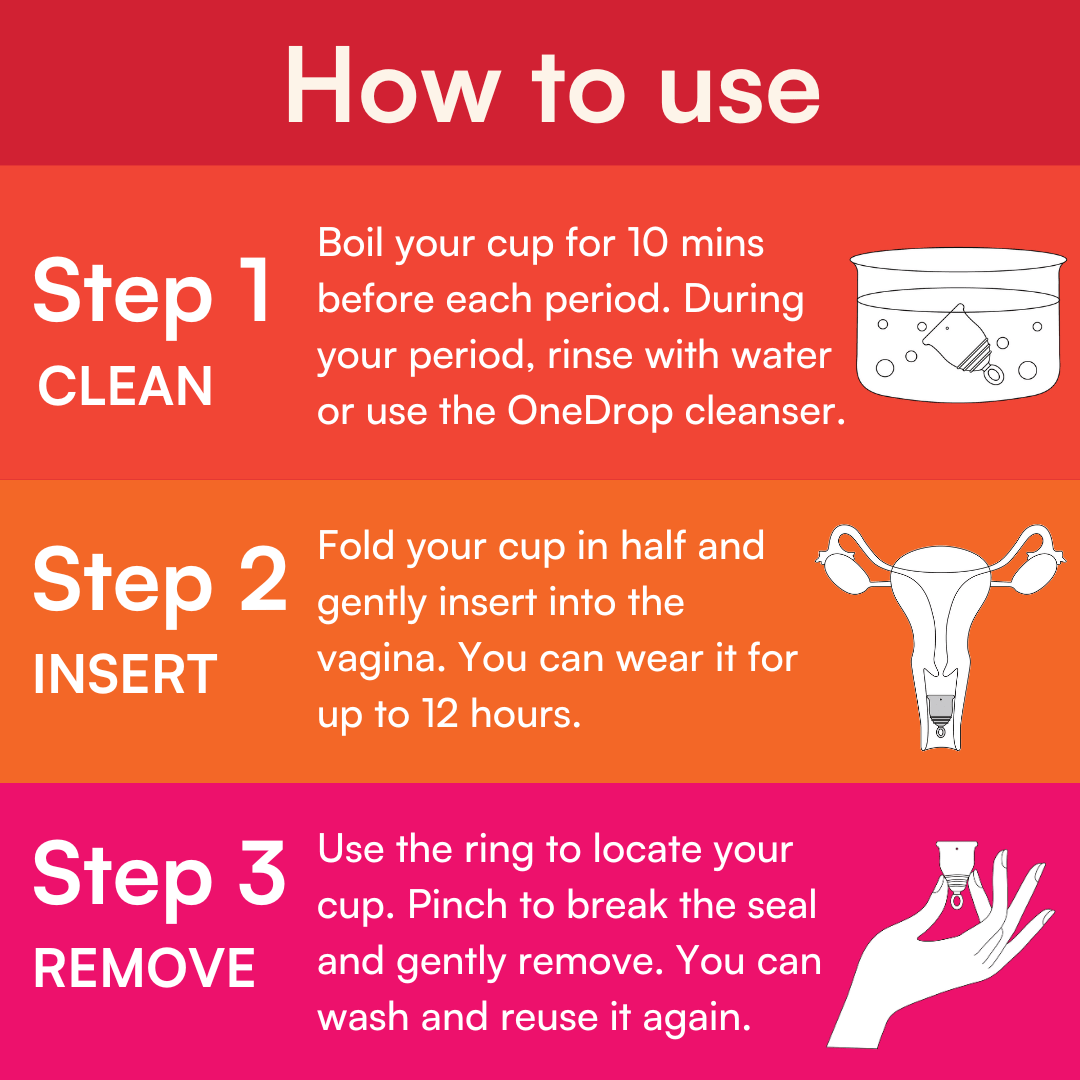
Late periods can be stressful and confusing - especially if you’re unsure why your period is late.
Up to 25% of menstruating women, especially at childbearing age, may experience late or missed periods.
In this blog, we’ll be covering everything about late periods and what you can do when periods are late.
What is the average menstrual cycle length?
On average, a menstrual cycle is about 28 days long - which means that your period will come every 28 days.
But keep in mind that only 15% of women have an exact 28 day cycle. Anywhere between 21 days to 35 days is considered a healthy and normal menstrual cycle.
Read this blog to learn more about the different phases of your menstrual cycle.
How can I track my menstrual cycle?
Tracking your menstrual cycle is a great practise and can help you manage your reproductive health.
The best way to track your menstrual cycle is by using a menstrual-cycle tracking app.
Read this blog to learn more about tracking your periods.
What can cause late periods?
Are you wondering why you haven’t gotten your period this month?
Before we get into what to do when a period is late, let's go over what can cause late periods.
There are many reasons that your period can be late. A few of the causes can include:
- Stress or exhaustion
- You’ve lost or gained weight
- You’ve started or stopped exercising
- You have PCOS
- You experience thyroid conditions
- You have amenorrhea
- You may be pregnant
- You’re using hormonal birth control
 Read this blog on what can cause late periods to learn more.
Read this blog on what can cause late periods to learn more.
What are some signs of a period coming late?
If your period is coming late, you may experience some pre-period symptoms that can be taken as signs of a delayed period.
This can include bloating, cramps, fatigue, period mood swings (PMS).
Since everyone’s body is different, you may not experience these symptoms and still experience a late period.
Similarly, experiencing these symptoms doesn’t mean that your period is definitely delayed - so if your symptoms persist beyond 3-4 days it’s best to consult a medical professional to better understand your body.
How much delay in periods is considered normal?
Up to 7 days of delays in your period is considered normal.
That being said, if you experience consistent delays in your menstrual cycle for more than 3 months then it can be a sign of an underlying health condition.
If you are someone that’s sexually active, it’s best to take a pregnancy test if your period is delayed by 7 or more days.
 If you are experiencing multiple delays in your menstrual cycles, please consult a gynaecologist.
If you are experiencing multiple delays in your menstrual cycles, please consult a gynaecologist.
What should I do if my period is late?
Firstly, there is no need to worry if your period is late. It is completely natural to experience one-off delays in your period. This could be due to changes in your lifestyle, environment or other factors.
If you are experiencing repetitive delays in your period, then it’s best to consult your doctor and understand what’s going on with your body.
When should I go to the doctor if my period is late?
You should go visit the doctor if:
- You’ve skipped 3 period cycles
- Your period has been delayed for 3 cycles
- Your periods have not started by the time you’re 16 years old
- You’ve missed a period and are experiencing other symptoms such as weight gain or loss, hair growth, acne or oily skin.
frequently asked questions
What exercise to do if periods are late?
While this is not medically proven, there are some exercises that you can try to help your period come early.
This includes kegel exercises, yoga and squatting.
 What to eat when periods are late?
What to eat when periods are late?
There are certain foods known to induce periods which you can try at home.
A few of these include papaya, jaggery, dates, ginger, citrus fruits and turmeric.
Keep in mind that it is not medically proven for foods to induce periods. So if you are experiencing consistent delays please consult your doctor.
What to do if periods are late by 5 days?
If your periods are late by 5 days that’s completely okay! Anywhere up to 7 days of delay is normal for periods.
What to do if periods are late by 10 days?
If your period is 10 days for one cycle, that is completely fine. However, if you experience up to 3 cycles with 10 days of delay then it's best to consult a doctor and understand if there are any underlying conditions causing this.
What to do when periods are late for 2 months?
If your periods are late for 2 months, please consult a medical professional to understand what might be causing this.
Are there any long-term effects of delayed periods?
The most common long-term effects of delayed periods is infertility. Having delayed periods can also increase your risk of cardiovascular disease.
What to do when periods are late for teenage girl?
It is completely normal for teenagers to experience irregularities in their periods for the first 2 years of entering menses. This is the natural process of their bodies adjusting to the changes during puberty.
If you’re a teenager and have had your period for more than 2 years, but are still experiencing delays or skipped periods, please consult your doctor to understand why this might be happening.














